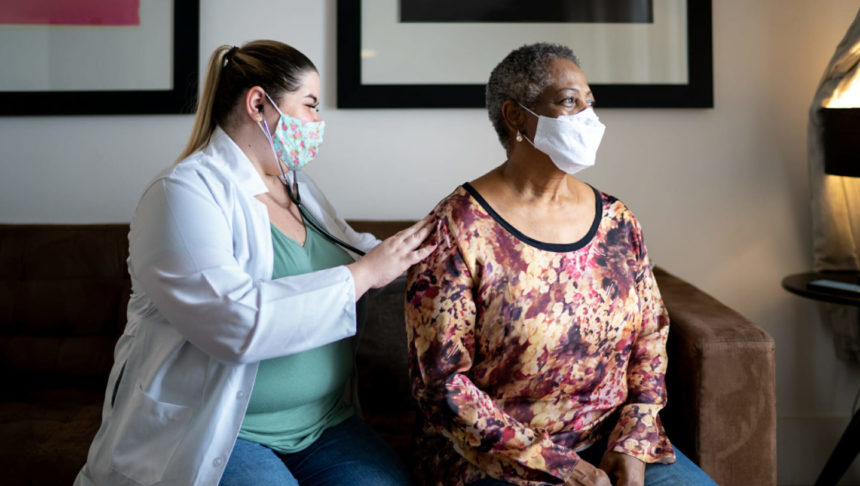
African Americans and Hispanics in the United States have an outsized risk of Alzheimer’s disease. This is due in part to vascular risk linked to socioeconomic disadvantage, a new study has found.
Lower incomes and lack of access to health insurance and medical care can lead to vascular-related diseases such as diabetes, hypertension and obesity in midlife and late life. This in turn significantly raises the odds of developing Alzheimer’s, according to researchers from the University of Miami Miller School of Medicine.
Poverty eclipses race, ethnicity
Older African American and Hispanic adults have nearly twice the odds of developing this form of dementia when compared to white Americans, reported study lead James E. Galvin, MD, PhD. And poverty, not race or ethnicity, underlies these disparities, the data showed.
“On first pass, we found that one reason that African Americans and Hispanics were at a higher risk is because they had much, much more vascular risk than whites,” Galvin said. “But when we broke data down by socioeconomic status, those differences disappeared. So, that showed us something interesting: Lifelong, people with less resources and poorer access to care accumulate vascular risk factors, which put them at higher risk for Alzheimer’s.”
People who were white and poor had the same accumulation of risk factors as African Americans, whereas financially well-off and Black or Hispanic people had less risk, the researchers found. Alzheimer’s risk “has to do a lot with what was occurring in early and midlife,” Galvin explained.
A ‘compound problem’
Ultimately, a person’s risk of developing Alzheimer’s in the United States comes down to the resources available to them over the course of their lifetime, he and his colleagues said.
The researchers hope that the results will bring more attention to the disparities in access to healthcare faced by various racial and ethnic minorities.
“This is a compound problem,” Galvin said in a statement. “There are social determinants and medical determinants, and if you think about one without the other, you’re never going to be able to address the problem.”
Full findings were published in the Journal of Alzheimer’s Disease.
Related articles:
Risk of Alzheimer’s nearly doubles in seniors with COVID, analysis shows
Most women unaware of their Alzheimer’s risk, Cleveland Clinic survey finds
Nearly half of Alzheimer’s cases are mild, supporting a focus on early intervention



